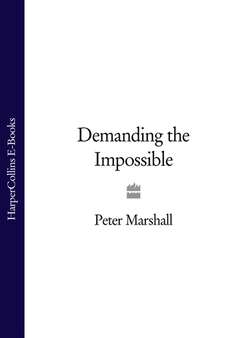Читать книгу Demanding the Impossible - Peter Marshall - Страница 11
Society
ОглавлениеSociety for anarchists is, as Thomas Paine wrote, invariably ‘a blessing’, the repository of all what is good in humanity: co-operation, mutual aid, sympathy, solidarity, initiative, and spontaneity.2 It is therefore quite misleading, as Daniel Guérin has done, to suggest that the anarchist ‘rejects society as a whole’.3 Only the extreme individualist Stirner attacks society as well as the State, and even he calls for an association or ‘union of egoists’ so that people can achieve their ends together. Godwin may have considered society only as an ‘aggregate of individuals’, but he speaks on behalf of most anarchists when he asserts that ‘The most desirable condition of the human species, is a state of society.’4
Anarchists argue that the State is a recent development in human social and political organization, and that for most of history human beings have organized themselves in society without government and law in a peaceful and productive way. Indeed, in many societies social order exists in inverse proportion to the development of the State.
Pure anarchy in the sense of a society with no concentration of force and no social controls has probably never existed. Stateless societies and peasant societies employ sanctions of approval and disapproval, the offer of reciprocity and the threat of its withdrawal, as instruments of social control. But modern anthropology confirms that in organic or ‘primitive’ societies there is a limited concentration of force. If authority exists, it is delegated and rarely imposed, and in many societies no relation of command and obedience is in force.
Ever since man emerged as homo sapiens, he has been living in stateless communities which fall roughly into three groups: acephalous societies, in which there is scarcely any political specialization and no formal leadership (though some individuals have prestige); chiefdoms, in which the chief has no control of concentrated force and whose hereditary prestige is largely dependent on generosity; and big-man systems, in which the charismatic big man collects his dues for the benefit of society. Anthropologists have described many different types of indigenous anarchies. They vary from gardeners to pastoralists, small groups like pygmies and Inuits in marginal areas to vast tribes like the Tiv in Nigeria or the Santals in East India.5 But while human beings have been living in such communities for forty or fifty thousand years, they have nearly all been absorbed or destroyed by states in the last couple of centuries.
Many of these organic societies are quite libertarian but some are characterized by ageism and sexism. They often have strong collective moral and religious systems which make people conform. Powerful moral and social pressures as well as supernatural sanctions are brought to bear on any anti-social behaviour. Yet for all their limitations, they show that the Hobbesian nightmare of universal war in a ‘state of nature’ is a myth. A society without hierarchy in the form of rulers and leaders is not a utopian dream but an integral part of collective human experience. Anarchists wish to combine the ancient patterns of co-operation and mutual aid of these organic societies with a modern sense of individuality and personal autonomy.
Apart from extreme individualists, anarchists thus see society as the natural condition of human beings which brings out the best in them. They consider society to be a self-regulating order which develops best when least interfered with. When asked what would replace government, numerous anarchists have answered ‘What do you replace cancer with?’ Proudhon was more specific and replied ‘Nothing’:
Society is eternal motion; it does not have to be wound up; and it is not necessary to beat time for it. It carries its own pendulum and its ever-wound-up spring within it. An organized society needs laws as little as legislators. Laws are to society what cobwebs are to a bee hive; they only serve to catch the bees.6
Anarchists thus believe that existing religious and political institutions are for the most part irrational and unnatural and prevent an orderly social life. Left to its own devices, society will find its own beneficial and creative course. Social order can prevail in the fundamental sense of providing security of persons and property.
This fundamental distinction between society and the State is held by liberal as well as anarchist thinkers. Locke depicted men in a state of nature as free and equal and regulated by the law of nature from which natural rights are derived. His notion of natural order existing independently of the State provides the theoretical grounds for the classic liberal defence of laissez-faire. He only differed from the anarchists in thinking that life in a state of nature could be uncertain and inconvenient without known laws and a limited government to protect the natural rights to life, liberty and property. Anarchists agree with Locke that humanity has always lived in society but argue that government simply exasperates potential social conflict rather than offering a cure for it.
Anarchists therefore believe that people can live together in peace and freedom and trust. The social anarchists look towards natural solidarity to encourage voluntary co-operation, while the individualists consider it possible to regulate affairs through voluntary contracts based on rational self-interest. Even those few anarchists like Sébastien Faure who see a struggle for survival in the state of nature believe that without laws, masters and repression, the ‘horrible struggle for life’ can be replaced by ‘fertile agreement’.7 There is therefore simply no need for the nightwatchman State of the liberal, let alone for the roaring Leviathan of authoritarian communists and fascists. Natural order can spontaneously prevail.
